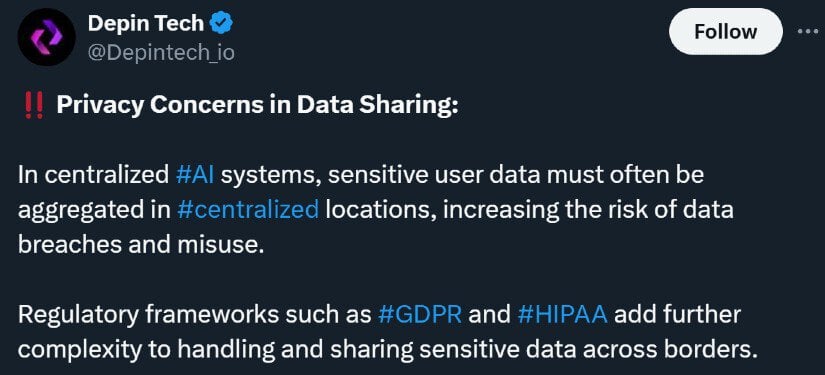As centralized information systems become increasingly vulnerable to exploitation, experts emphasize decentralization as an important tool for protecting privacy and security in the digital age.
From advanced artificial intelligence (AI) to the advent of quantum computing, the technological landscape has evolved to pose significant risks to data integrity and individual autonomy.
Centralized Systems: A Growing Risk
According to Cointelegraph, David Holtzman, a former military intelligence expert and chief strategy officer at Naoris Decentralized Security Protocol, warns that centralized systems are particularly vulnerable to abuse. “The whole problem with centralized systems is that there is a center,” Holtzman explained, emphasizing that this unique control point makes them attractive targets for both government and corporate actors.

Source: X
New technologies are exacerbating these vulnerabilities. Scalable quantum computers have the potential to break current encryption standards, while advanced AI systems could leverage centralized data storage. Holtzman suggests that decentralization offers a way to mitigate these threats by redistributing control and improving data security.
Decentralized frameworks like blockchain can serve as a critical test against the uncontrolled power of AI. Quantum-resistant algorithms are now being developed to counteract the risks of quantum computing. Holtzman emphasized that while technological advances offer solutions, the concentration of institutional power remains a pressing problem. “Humanity needs a little transformation because we have given too much…”


